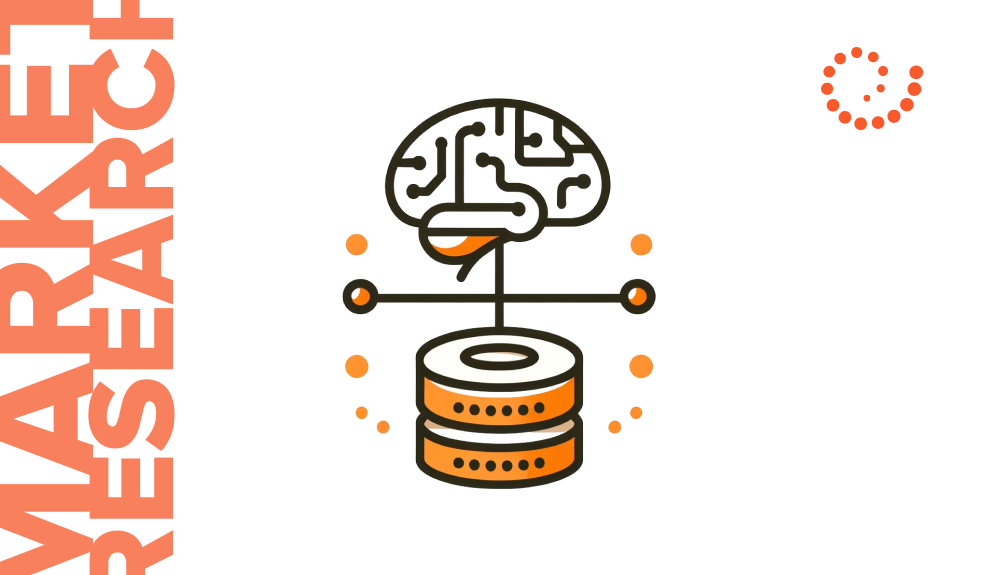
Electronic invoicing is the exchange of an electronic invoice document between a supplier and a buyer.

Info Setronica | May 16th, 2024
Artificial Intelligence (AI) is revolutionizing industries across the globe, from autonomous vehicles to advanced medical diagnostics. However, the backbone of any successful AI project lies in the quality and diversity of its training data. This research explores the importance of partnering with data collection services for AI projects, highlighting the benefits and comparing top providers like Appen, Clickwalker, and Telus International.
AI models are only as good as the data they’re trained on. High-quality, diverse, and accurately annotated data ensures AI systems can understand and interpret the world as humans do. This is crucial for developing reliable and effective AI-powered solutions that can operate in complex, real-world environments.
Data collection services specialize in gathering, annotating, and validating vast amounts of data necessary for training AI models. These services leverage extensive networks of contributors to produce datasets that are diverse, representative, and of high quality. By partnering with a data collection service, AI projects can:
Companies seeking to enhance their AI models can greatly benefit from working with data collection services like Appen, Clickworker, or other alternatives. Collecting data allows you to capture a record of past events so that we can use data analysis to find recurring patterns. From those patterns, you build predictive models using machine learning algorithms that look for trends and predict future changes.
Data collection services offer comprehensive data annotation, labeling, and image annotation capabilities. Those are essential for creating accurate, high-quality training datasets. These datasets are necessary for training sophisticated machine learning models and neural networks. The labeling tools available are fast and have intuitive user interfaces, making them essential for data scientists and machine learning teams to develop effective AI solutions.
Additionally, these data processing services support various data types and are equipped with automation features that streamline data management and analysis processes. This is particularly useful in tasks such as language translation, content moderation, and customer care, where human intelligence combines with artificial intelligence to achieve better results. These platforms also offer the much-needed flexibility to manage projects in multiple languages and meet diverse business requirements.
Appen offers comprehensive data collection and management services tailored for AI project lifecycle stages. Specializing in computer vision, facial image recognition, and voice recognition solutions, Appen relies on a crowdsourcing model to gather and annotate data across various types.
Pros:
Cons:
Additionally, according to AIMultiple research, the workers find the compensation rates low, with some reporting rates as low as $2 per hour. Also, some sources describe Appen’s platform UI as complicated, and workers found invoicing difficult.

Country share analytics. Source: Semrush
Clickworker specializes in generating, validating, and labeling AI training data, leveraging a global crowd of internet professionals known as Clickworkers. They perform micro-tasks on the platform, contributing to the creation of diverse and customized datasets that cater to the specific requirements of AI systems. The platform is designed to assist not only in the creation of datasets but also in the training and perfection of AI systems through the provision of human-crafted data like texts, photos, audio, and video recordings.
Pros:
Cons:

Country share analytics. Source: Semrush
Telus International differentiates itself with a more extensive language coverage, offering data services in over 500 languages and dialects. It provides similar crowd size to Appen and specializes in creating datasets for machine learning models across various applications.
Pros:
Cons:

Country share analytics. Source: Semrush
Amazon Mechanical Turk (MTurk) stands as an innovative platform in the realm of crowdsourcing, facilitating the connection between businesses needing task completion and individuals willing to perform these tasks for compensation.
Pros:
Cons:

Country share analytics. Source: Semrush
Comparing the popularity and market distribution of Clickworker, Amazon Mechanical Turk, Telus International, and Appen involves examining worker ratings, number of reviews, and their presence in the data collection market. These factors help to gauge not only the satisfaction and engagement of the workforce involved in these platforms but also their visibility and reputation in the wider market.
The popularity among workers can be a reflection of a platform’s market distribution, as higher satisfaction and engagement levels often correlate with a wider adoption and a stronger reputation in the industry. Clickworker’s high ratings and substantial number of reviews indicate a prominent market distribution, likely attracting a diverse range of clients and projects. Conversely, the lower worker satisfaction scores for Amazon Mechanical Turk and Telus International may reflect more specialized market niches or areas requiring improvement to enhance their distribution and popularity.
When it comes to search trends, there is no definite answer which service leans towards being the most popular one. All of them show relatively similar data, with Appen having the highest peaks, while MTurk being a bit more popular on average.

Clickworker appears to lead in popularity and market distribution among the platforms compared, as indicated by worker ratings and review counts. Amazon Mechanical Turk and Telus International, while significant in the market, show areas for potential growth in worker satisfaction. Appen, though not directly compared in terms of worker ratings here, is acknowledged for its extensive experience and global reach, suggesting a strong market presence. These insights into worker experiences provide a lens through which the market distribution and popularity of these platforms can be inferred, highlighting the importance of worker satisfaction in the broader context of market success and visibility.
According to the data from Google Trends, it is possible to compile the following leaderboard:





When selecting a data collection tool for AI projects, it’s important to consider several key factors that will affect the performance and accuracy of your AI models. Here are some actionable guidelines:
By carefully evaluating these factors, you can select a data collection tool that will contribute to the success of your AI projects, helping you build robust and accurate models. Remember that the right tool will not only streamline data collection, but also positively impact the overall development cycle of your AI applications.
In the rapidly evolving field of AI, the need for high-quality, diverse training data cannot be overstated. Data collection services like Appen, Clickworker, and Telus International play a critical role in providing the raw materials necessary for building sophisticated AI models. While each service has its strengths and weaknesses, the choice depends on specific project needs, including the type of data required, budget constraints, and geographical coverage. As AI continues to advance, the collaboration between AI projects and data collection services will become increasingly vital, driving innovation and enhancing the capabilities of AI solutions worldwide.
Ethical data sourcing is a critical concern for data collection services. These services often adhere to strict ethical guidelines to ensure that the data is collected transparently and with consent from the data subjects. This involves clear communication of the data use purpose, obtaining explicit consents, and ensuring the data is used solely for the stated purposes. Additionally, ethical sourcing includes fair compensation and treatment of contributors who provide data, ensuring that their rights and privacy are respected.
Large-scale data processing and storage can have significant environmental impacts, primarily through energy consumption and electronic waste. Data centers, where much of this processing takes place, consume large amounts of electricity, often sourced from non-renewable resources. To mitigate these impacts, many service providers are moving towards greener technologies, such as renewable energy sources, more efficient cooling systems, and designing software and hardware that require less power. Additionally, some companies participate in carbon offset programs and advance towards achieving carbon neutrality.
Machine learning plays a pivotal role in enhancing the efficiency of data annotation processes. By using algorithms that learn from data, these services can automate the annotation tasks, which are traditionally very labor-intensive. For instance, machine learning models can pre-annotate images or texts, which human annotators then review and adjust if necessary. This semi-automated approach reduces the time and cost associated with data annotation while maintaining high accuracy levels. Over time, as the machine learning models are trained with more annotated data, their accuracy and efficiency improve, further optimizing the process.

Electronic invoicing is the exchange of an electronic invoice document between a supplier and a buyer.

Delve into the evolving landscape of Mass Timber construction with our December 2024 market research.
Contact us today to discuss your project and see how we can help bring your vision to life. To learn about our team and expertise, visit our ‘About Us‘ webpage.

Setronica is a software engineering company that provides a wide range of services, from software products to core business applications. We offer consulting, development, testing, infrastructure support, and cloud management services to enterprises. We apply the knowledge, skills, and Agile methodology of project management to integrate software development and business objectives effectively and efficiently.
contact@setronica.com
+386 6968 2515
Slovenia:
Kolodvorska 7, 1000 Ljubljana
USA:
211 E 7th St, Austin, TX 78701
© Copyright 2024 Setronica. All Rights Reserved.
